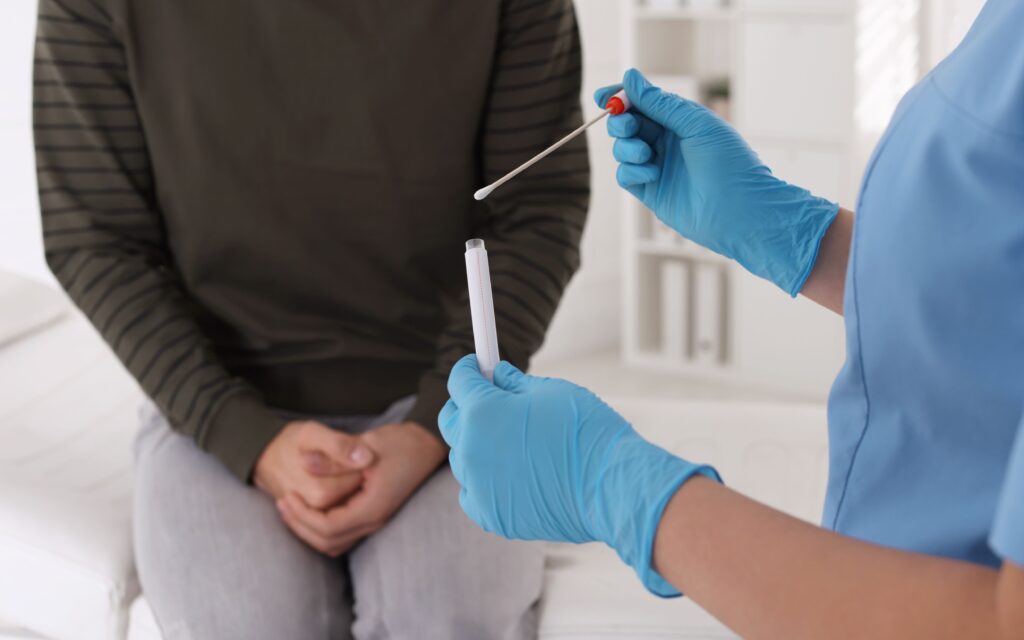Sexual Health
Sexual Health
On this page:
Reproductive Health Care
The Family Planning Program of Benton County serves individuals of reproductive age with a wide scope of reproductive and sexual health services.

Services:
- Certain wellness exams and screening tests (Pelvic exam, Pap test)
- Birth control information and counseling
- Birth control supplies
- Emergency contraception
- Pregnancy testing and counseling
- Sexually transmitted infection screening and treatment
- HIV/AIDS testing and counseling
- Permanent sterilization information (Vasectomy, Tubal ligation)
All services are voluntary and confidential.
We do not provide traditional pregnancy/maternity care; For local maternity care providers, please ask one of our team members.
You may also qualify for programs designed to support pregnant people and expecting families. Click here.
Eligibility
Any individual of reproductive age is eligible for our services. No one will be turned away because of their county of residence, citizenship status, income, gender, sexual orientation, race, or creed. Services are low cost or may be free if you qualify for the Oregon Reproductive Health Program (ORHP). ORHP pays for reproductive health visits, contraceptive supplies and certain exams to those that qualify based, in part on financial guidelines. Individuals currently enrolled in Oregon Health Plan (OHP) are not eligible for ORHP.
Sexuality Transmitted Infections
Testing

If you are looking for STI or HIV testing through a healthcare provider, please make an appointment through the Community Health Centers of Benton and Linn Counties.
Additionally, the Public Health Nurses affiliated with our Communicable Disease Team offer a sexually transmitted infection clinic. We consider each person’s risk factors for infection and – depending upon those risks – can screen for chlamydia, gonorrhea, HIV, and syphilis. To make an appointment, call 541-766-6835.
If you are looking for free and anonymous HIV and/or Hepatitis C testing outside of a doctor’s office, then contact the Risk Reduction Program. Call our message line at 541-766-6314 or email RiskReduction@bentoncountyor.gov. We will respond to your call or email as soon as possible, within 2 business days.
People who live in Oregon may also be able to order a free HIV and STI home test kit from TakeMeHome.org.
If you think you’ve recently been exposed to HIV during sex or if you’ve been sexually assaulted, seek medical care right away (Urgent Care, Quick Care, the emergency room, or your local care provider).
They can prescribe a medication to stop HIV infection.
Medication must be started within 72 hours after a possible exposure to HIV.
Prevention
There are medications that can reduce the ability of STIs to spread. Gardasil (the HPV vaccine) protects against 9 types of HPV and the cancers they may cause. The vaccine is available to qualifying youth through our Vaccines for Children program.
PrEP is a daily pill that is up to 99% effective at preventing HIV transmission through sex. OHP and most insurance plans cover PrEP, and your doctor can help determine if it is right for you. HIV Alliance provides navigation services if you would like more help accessing PrEP.
We also distribute free condoms and safer sex supplies by mail for addresses in Benton County, Oregon. You can order them below.

Order Safer Sex Supplies Here
Safer Sex Supply Order Form
(in English)
Formulario de pedidos para suministro de sexo más seguro
(en Español)
If you live in Oregon, but do not live in Benton County, you may request condoms and safer sex supplies through the One at Home Program here.
Reporting

By law, health care providers and labs must report specific infections to the local health department. While this is not exclusive to STIs, it does include them. When they receive notification, Public Health Nurses reach out to the person with a positive lab report. In our conversation we will cover:
- the source of the infection
- who else may be exposed to the infection (contacts)
- education about the disease and ways to stop its spreading to others
Depending on the infection, Public Health Nurses may also reach out to contacts. During those conversations, we discuss:
- signs of the infection
- what steps to take should the signs occur
- if they should seek treatment
This is all done in a confidential manner in order to protect the identity of persons involved.
